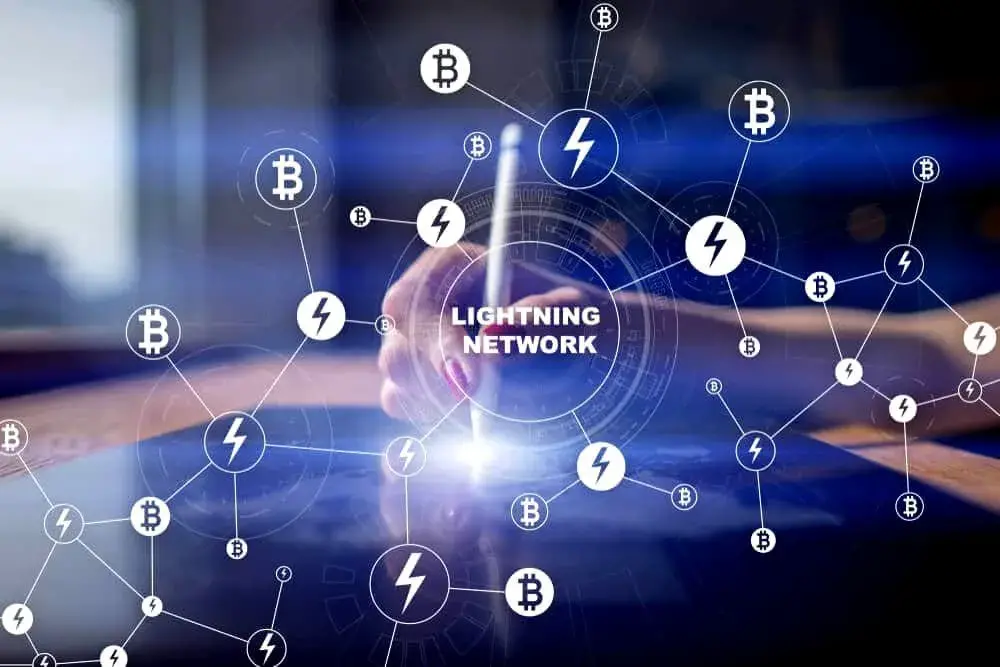
The Lightning Network is a Layer -2 solution for Bitcoin. As such, it should above all have significantly better scalability than the mainnet , but the P2P network is also a blessing for user privacy. Do new features jeopardize its confidentiality or do they even promote it?
Node client Thunderhub brings transparency to Lightning
The company responsible is called Amboss Inc. and opened its doors in 2021. It focuses on products related to the Lightning Network ecosystem. A marketplace called Magma was launched in April.
This is also created for the Lightning Network. The peer-to-peer network, which is also called LN for short , is based on connections between individual nodes – the so-called channels. In order for payments to be able to get from the sender to the recipient, they are needed.
Magma is intended to show users which channels are needed at which point. The principle, of course, depends heavily on information – an element that Amboss wants to delve into.
That’s why the company recently announced a new feature for the node client Thunderhub . From version 0.13.16, balance reporting is possible there.
The operators of the nodes can thus voluntarily pass on information about the cash flows to Amboss, which run through their respective network nodes. Since the source code for this function is open, it can be inserted into other node managers.
Lightning Network: A Replacement for Privacy Coins?
Enthusiasts consider the Lightning Network to be the most promising protocol within the Bitcoin ecosystem. Proponents hope it will secure Bitcoin’s future as an effective means of payment.
It is often said that it could displace privacy coins . In contrast to the Bitcoin mainnet, not every transaction is publicly visible here. Only the nodes involved are aware of the money transfers. Lightning only writes information to the Bitcoin blockchain when a channel is opened or closed .
The fact is: LN has not yet managed to really compete with privacy coins. Monero is currently the most widely used cryptocurrency on sensitive marketplaces .
The new, voluntary balance sheet reports that Amboss enables could support the status quo. However, the company sees itself more in the role of a liberator. In a press release , the balance report is declared to be a better alternative to probing :
Probing, a deliberately failed payment, reveals private information about the channel’s balance without consent. It is in a way an attack on the privacy of the nodes. Despite this, it is used extensively throughout the network to provide critical functions.
The process, which translates into German as sounding , ensures channels have the most balanced funds possible to ensure payments work.
More freedom thanks to Thunderhub?
The idea of the functions developed by Amboss, which are available via Thunderhub, is very simple: if participating nodes voluntarily provide their monetary information, an exploratory payment is no longer necessary. This also reduces the risk of losing funds through the confiscation of the counterparty.
In general, you want to offer users more freedom. In this way, the decision is left open to them whether the monetary amounts of the nodes are only transferred to Amboss, the weighting in percentages or the exact amount is even shared publicly in absolute numbers
We develop tools that help node operators to make good decisions through insights. The best way we can help is when users are honest about their amounts of money. When we can provide good insight, the level of detail in network data increases, making it more valuable for diagnosing and solving network problems.
Explains anvil. Whether this function of privacy is ultimately a hindrance or a benefit cannot yet be conclusively determined. Since the use is on a voluntary basis, the effectiveness depends to a large extent on the individual decision of the node operator.
However, it should be noted that data sent to Amboss could already become problematic without being voluntarily made available to the public. Amboss already collects a large amount of data on its own website .
Around 17,000 nodes and almost 82,000 channels are known there. The highest balance is 14 Bitcoin and the lowest is 1,100 Satoshis.

One thought on “Lightning Network: Will privacy soon be a thing of the past?”